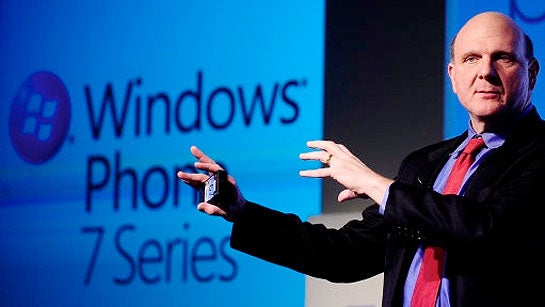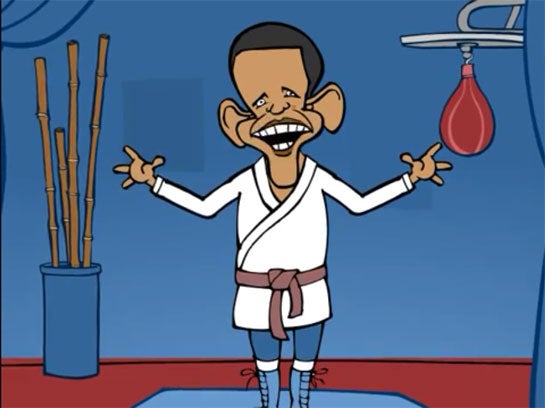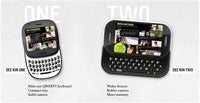 Progress?to swipe an ancient General Electric slogan?is the technology industry?s most important product. Its second-most important product? That?s easy: blunders. In fact, you could argue that the two are inextricably intertwined. An industry that was more uptight about making mistakes might be more cautious and therefore less inventive.
Progress?to swipe an ancient General Electric slogan?is the technology industry?s most important product. Its second-most important product? That?s easy: blunders. In fact, you could argue that the two are inextricably intertwined. An industry that was more uptight about making mistakes might be more cautious and therefore less inventive.
It?s also sometimes difficult to tell where progress ends and blunder begins, or vice versa. If you believe that Google Wave was a bad idea in the first place, you might think it was smart of Google to kill it this year?but if you thought Wave had promise, then it?s Google?s early cancellation that?s the gaffe.
All of which is a roundabout way of saying that while the industry?s lame moments are?well, lame, they can also be important. Last year, I summed up a decade?s worth of tech screw-ups and came up with 87 examples. This time around, I?m covering only a single year?but I found 57 items worth commemorating. No, tech companies aren?t getting more error prone; I was just more diligent. And as usual, there was plenty of ground to cover.
Thanks once again to Business 2.0's 101 Dumbest Moments in Business and, of course, to Esquire?s Dubious Achievement Awards for inspiring this. Here we go?


1. Following in the proud tradition of the SPOT Watch and Windows Smart Displays.
Three weeks before Steve Jobs unveils the iPad, Microsoft CEO Steve Ballmer pre-emptively shows off ?Slate PCs? running Windows 7 at his CES keynote. He declares them ?perfect?perfect?for reading, for surfing the Web, and for taking entertainment on the go,? but fumbles with the HP model he demos. The tablets fail to overcome the long-standing curse that has doomed countless Microsoft products announced during CES keynotes to oblivion.

2. I?m sure Dr. Land would be gaga over the news.
At CES, one-time consumer-electronics powerhouse and current mousepad kingpin Polaroid announces that it?s named Lady Gaga as creative director.
3. How come HTC didn?t demand, oh, $250?
 Buyers of the Nexus One phone (manufactured by HTC, sold by Google) who opt for a T-Mobile subsidy but cancel service after a 14-day trial but before their two-year contract ends must pay $200 to T-Mobile and $350 to Google. On top of the $179 price they paid for the phone, that leaves them out a total of $729?or $200 more than they would have paid for an unsubsidized Nexus One in the first place. (Google later lowers its fee to $150.)
Buyers of the Nexus One phone (manufactured by HTC, sold by Google) who opt for a T-Mobile subsidy but cancel service after a 14-day trial but before their two-year contract ends must pay $200 to T-Mobile and $350 to Google. On top of the $179 price they paid for the phone, that leaves them out a total of $729?or $200 more than they would have paid for an unsubsidized Nexus One in the first place. (Google later lowers its fee to $150.)
4. Sue it loud.
Kodak sues Apple and RIM over imaging patents.

5. The obligatory dumb-crook story.
Two days after Christmas, young reprobates in Wilsonville, Oregon steal a bunch of electronics, including two Motorola Android phones. One of the delinquents snaps some pictures of himself with one of the phones?apparently unaware that it?s running Lookout, an application that silently backs up all images to the cloud. Using the photographic evidence, the Wilsonville police make an arrest in mid-January.

6. Bad buzz.
 Google launches Buzz, a Twitter-like service whose defining feature is that it?s built into Gmail, thereby turning Gmail users? contact lists into social networks. It runs into immediate flack from users who don?t want their contacts to be made social or public. The company moves quickly but it takes several passes of fixes before the controversy dies down. And even then, Buzz never quite seems to catch on.
Google launches Buzz, a Twitter-like service whose defining feature is that it?s built into Gmail, thereby turning Gmail users? contact lists into social networks. It runs into immediate flack from users who don?t want their contacts to be made social or public. The company moves quickly but it takes several passes of fixes before the controversy dies down. And even then, Buzz never quite seems to catch on.

7. It?s not a Microsoft product name without at least one superfluous word.
At Mobile World Congress in Barcelona, Microsoft announces a radically new version of Windows Mobile. It?s impressive, but its name??Windows Phone 7 Series??doesn?t exactly roll off the tongue. After nearly everybody who writes about the new version mocks its moniker, the company shortens the name to the more harmonious ?Windows Phone 7" months before the phones ship.
8. Conversations with myself.
Rabble-rousing InfoWorld blogger Randall Kennedy?who frequently cites data from Windows performance research company Devil Mountain Software?admits that he has a second identity: Craig Barth, CTO of Devil Mountain Software.
9. Hey, nobody likes being exposed to obloquy.
 The makers of VoIP gizmo MagicJack lose their lawsuit against Boing Boing, which had published a post criticizing the product?s end-user license agreement (EULA) and pointing out that its Web site pretends to detect MagicJacks installed on PCs and automatically increments a counter that supposedly shows how many people have come to the site for a free trial. MagicJack, which had charged that the post had exposed it to ?hate, ridicule and obloquy,? is ordered by a judge to pay Boing Boing more than $50,000 to cover the blog?s legal costs.
The makers of VoIP gizmo MagicJack lose their lawsuit against Boing Boing, which had published a post criticizing the product?s end-user license agreement (EULA) and pointing out that its Web site pretends to detect MagicJacks installed on PCs and automatically increments a counter that supposedly shows how many people have come to the site for a free trial. MagicJack, which had charged that the post had exposed it to ?hate, ridicule and obloquy,? is ordered by a judge to pay Boing Boing more than $50,000 to cover the blog?s legal costs.

10. Sue city.
Apple sues HTC over mobile patents.

11. Let he among us who has never left someone else?s top-secret property behind at a bar cast the first stone.
Apple engineer Gray Powell visits a biergarten in Redwood City, California. He enjoys some fine German brews. Then he departs?and leaves an iPhone behind. An unreleased prototype next-generation iPhone.


12. And if any Nobel Peace Prize winners submit apps, we?ll put the kibosh on them, too.
An Apple App Store policy against iPhone software that ridicules public figures briefly results in the rejection of a satirical app by Pulitzer Prize-winning cartoonist Mark Fiore.
13. Que overdue.
E-reader maker Plastic Logic pushes the ship date for its much-anticipated Que ProReader?which looked pretty nifty when it was unveiled in January, three weeks before the iPad?from April to June.
14. Highly social twentysomethings aren?t all that demanding, I?m told.
 Microsoft announces the Kin One and Kin Two, two phones with built-in social networking features. Reviewers question the decision to release Windows phones based neither on Windows Mobile 6.5 nor Windows Phone 7, squawk about the lack of an app store, and say that the need to commit to a Verizon smartphone plan is inappropriate given the phones? limited capabilities. Microsoft executives counter that the phones are aimed at highly social twentysomethings and are therefore difficult for the typical jaded tech pundit to appreciate.
Microsoft announces the Kin One and Kin Two, two phones with built-in social networking features. Reviewers question the decision to release Windows phones based neither on Windows Mobile 6.5 nor Windows Phone 7, squawk about the lack of an app store, and say that the need to commit to a Verizon smartphone plan is inappropriate given the phones? limited capabilities. Microsoft executives counter that the phones are aimed at highly social twentysomethings and are therefore difficult for the typical jaded tech pundit to appreciate.
15. The good news is that you didn?t have a virus after all.
In certain circumstances, McAfee security software misidentifies a core Windows XP component as malware and deletes it, causing PCs to reboot over and over and over. The company?s initial response to the crisis strikes some customers as a tad blithe; later updates are more apologetic and less defensive.
16. Facebook? Making sweeping changes that impact user privacy without considering the implications? No, you must be thinking of another site.
At Facebook?s F8 conference, founder Mark Zuckerberg announces an array of new features, including a Like button that can appear on any site and integration with third-party services such as Pandora. Controversy over the changes? effect on privacy rages for weeks, and proves hard to extinguish even after the site adds additional controls.
17. Um, that?s fewer tablets than Apple has sold so far, right? 
Fusion Garage, maker of the ill-fated, poorly-reviewed JooJoo ( n�e CrunchPad) sends out an e-mail to JooJoo buyers seeking their feedback on the device. The company puts all their addresses in the to: field rather than blind-carbon-copying them, so anyone who gets the e-mail can see who else received it. There are sixty-four recipients.
Source: http://feeds.pcworld.com/click.phdo?i=43e5fbe4fe933b3c29062c6d127189c4
Novellus Systems Nuance Communications Nvidia On Semiconductor Openwave Systems
No comments:
Post a Comment